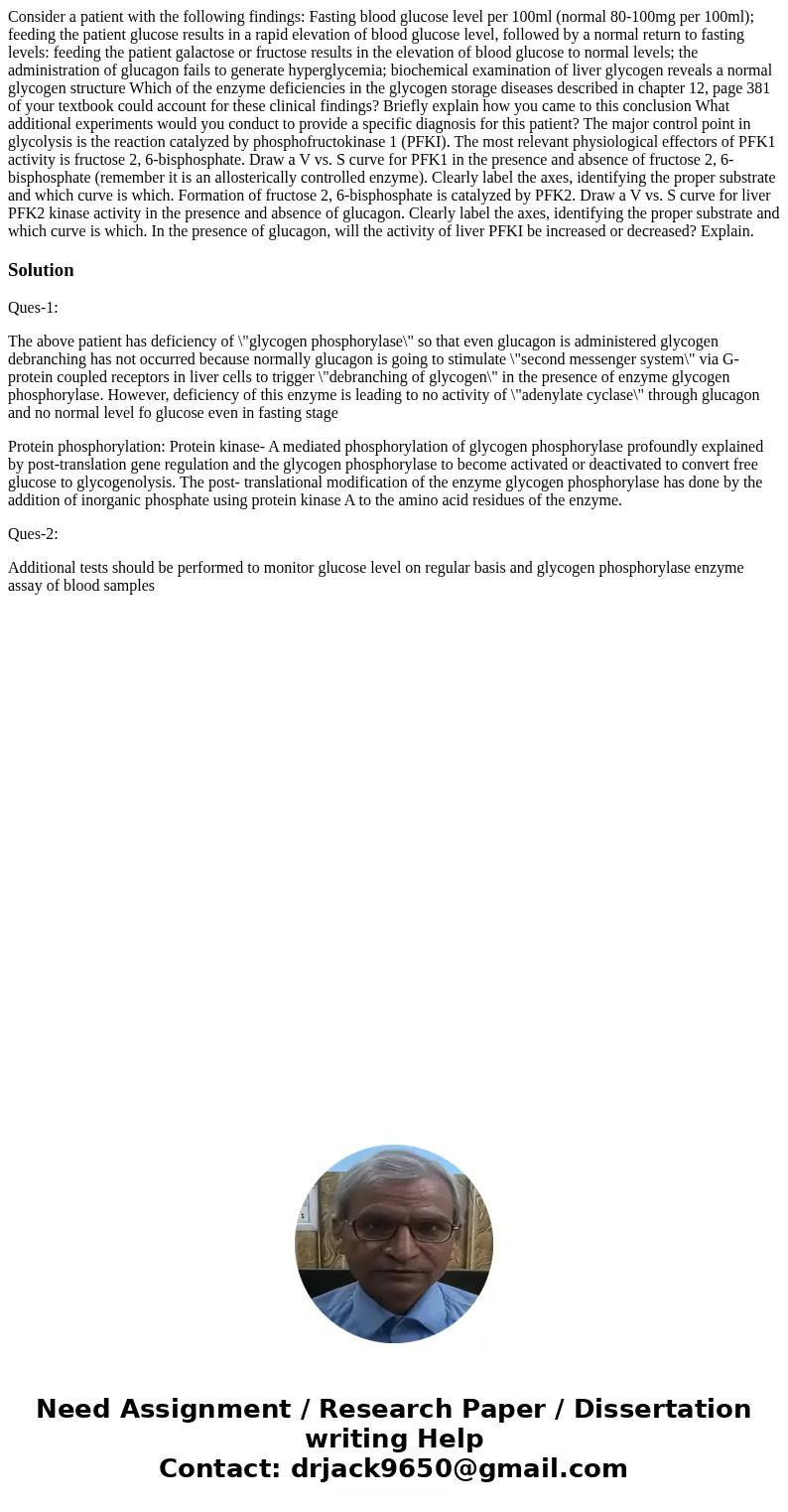Consider a patient with the following findings: Fasting blood glucose level per 100ml (normal 80-100mg per 100ml); feeding the patient glucose results in a rapid elevation of blood glucose level, followed by a normal return to fasting levels: feeding the patient galactose or fructose results in the elevation of blood glucose to normal levels; the administration of glucagon fails to generate hyperglycemia; biochemical examination of liver glycogen reveals a normal glycogen structure Which of the enzyme deficiencies in the glycogen storage diseases described in chapter 12, page 381 of your textbook could account for these clinical findings? Briefly explain how you came to this conclusion What additional experiments would you conduct to provide a specific diagnosis for this patient? The major control point in glycolysis is the reaction catalyzed by phosphofructokinase 1 (PFKI). The most relevant physiological effectors of PFK1 activity is fructose 2, 6-bisphosphate. Draw a V vs. S curve for PFK1 in the presence and absence of fructose 2, 6-bisphosphate (remember it is an allosterically controlled enzyme). Clearly label the axes, identifying the proper substrate and which curve is which. Formation of fructose 2, 6-bisphosphate is catalyzed by PFK2. Draw a V vs. S curve for liver PFK2 kinase activity in the presence and absence of glucagon. Clearly label the axes, identifying the proper substrate and which curve is which. In the presence of glucagon, will the activity of liver PFKI be increased or decreased? Explain.
Ques-1:
The above patient has deficiency of \"glycogen phosphorylase\" so that even glucagon is administered glycogen debranching has not occurred because normally glucagon is going to stimulate \"second messenger system\" via G-protein coupled receptors in liver cells to trigger \"debranching of glycogen\" in the presence of enzyme glycogen phosphorylase. However, deficiency of this enzyme is leading to no activity of \"adenylate cyclase\" through glucagon and no normal level fo glucose even in fasting stage
Protein phosphorylation: Protein kinase- A mediated phosphorylation of glycogen phosphorylase profoundly explained by post-translation gene regulation and the glycogen phosphorylase to become activated or deactivated to convert free glucose to glycogenolysis. The post- translational modification of the enzyme glycogen phosphorylase has done by the addition of inorganic phosphate using protein kinase A to the amino acid residues of the enzyme.
Ques-2:
Additional tests should be performed to monitor glucose level on regular basis and glycogen phosphorylase enzyme assay of blood samples

 Homework Sourse
Homework Sourse